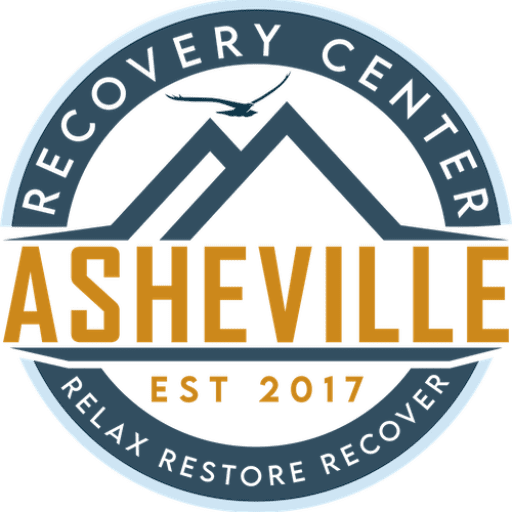Attention Deficit Hyperactivity Disorder (ADHD) is a neurodevelopmental disorder characterized by symptoms like inattention, hyperactivity, and impulsivity. Approximately 6.4 million children ages 4 to 17 have been diagnosed with ADHD. North Carolina has one of the highest rates of treatment in the country, with 9.4% of children being treated for ADHD. Let’s learn more about Adderall and answer the question, “Is Adderall addictive?”
One of the most common medications prescribed for managing ADHD symptoms is Adderall. Concerns often arise regarding the addictive potential of Adderall. Asheville Recovery Center understands that fears people have about using Adderall as ADHD treatment – which is why being informed about the addiction potential and using the medication as prescribed by a healthcare provider is key on using it successfully.
What is Adderall?

Adderall is a central nervous system stimulant comprised of a combination of amphetamine and dextroamphetamine. It works by increasing the levels of certain neurotransmitters in the brain, primarily dopamine and norepinephrine. These neurotransmitters play key roles in regulating attention, motivation, and focus, which are areas often affected by ADHD.
The Effectiveness of Adderall in ADHD Treatment
For individuals diagnosed with ADHD, Adderall can be an effective treatment option. It helps improve attention span, reduce impulsivity, and control hyperactivity, enhancing daily functioning and quality of life. Many people with ADHD report significant improvements in their ability to concentrate and complete tasks when taking Adderall as prescribed by their healthcare provider.
Potential for Addiction
Despite its therapeutic benefits, Adderall carries a risk of addiction, especially when misused or taken without a prescription. The stimulant properties of Adderall can lead to feelings of euphoria, increased energy, and enhanced focus, which may be desirable for some individuals, whether they have ADHD or not. This causes a potential for misuse and dependence, particularly among those seeking to enhance cognitive performance or when used for recreational purposes.
Differentiating Addiction from Dependence
It’s crucial to distinguish between Adderall addiction and dependence. Dependence refers to the body’s adaptation to the presence of the drug, leading to withdrawal symptoms when its use is discontinued abruptly. Addiction, on the other hand, involves compulsive drug-seeking behavior despite adverse consequences, often accompanied by a loss of control over use.

The Risk Factors for Adderall Addiction
Several factors contribute to the risk of addiction to Adderall – these are much like the risk factors associated with other substances, including:
- Genetics: Some individuals may have a genetic predisposition to addiction, making them more susceptible to developing dependence on Adderall or other stimulants.
- History of Substance Abuse: A personal or family history of substance abuse disorders increases the likelihood of developing an addiction to Adderall.
- Psychological Factors: Co-occurring mental health disorders, such as depression or anxiety, can exacerbate the risk of addiction.
- Social and Environmental Influences: Peer pressure, access to the drug, and societal norms regarding stimulant use can also influence addictive behaviors.
Is Adderall Addictive?

While Adderall may be highly effective when used as prescribed under the supervision of a healthcare professional, it also carries the risk of addiction and dependence when misused or abused.
Here are some symptoms that may indicate Adderall addiction:
- Increased Tolerance: Over time, individuals may find that they need higher doses of Adderall to achieve the desired effects. This increased tolerance is a common sign of addiction.
- Withdrawal Symptoms: When Adderall use is abruptly stopped or significantly reduced, withdrawal symptoms may occur. These can include fatigue, depression, irritability, difficulty sleeping, increased appetite, and cravings for the drug.
- Compulsive Use: Individuals may find themselves unable to control their use of Adderall, taking it more frequently or in higher doses than prescribed, despite negative consequences such as health problems, relationship issues, or academic or occupational difficulties.
- Preoccupation with Obtaining Adderall: Adderall addiction may lead to a preoccupation with obtaining the drug, including visiting multiple doctors to obtain multiple prescriptions (known as “doctor shopping”) or seeking it from illicit sources.
- Neglecting Responsibilities: As addiction takes hold, individuals may neglect important responsibilities such as work, school, or family obligations in favor of obtaining and using Adderall.
- Changes in Behavior: Adderall addiction can lead to changes in behavior, including mood swings, agitation, aggression, and engaging in risky behaviors.
- Financial Problems: Addiction to Adderall can lead to financial strain as individuals may spend excessive amounts of money to obtain the drug, leading to financial instability or even legal problems.
- Social Isolation: Adderall addiction can lead to social withdrawal and isolation as individuals may prioritize drug use over social activities and relationships.
- Physical Health Issues: Misuse of Adderall can lead to a range of physical health problems, including cardiovascular issues, gastrointestinal problems, insomnia, and malnutrition.
- Continued Use Despite Negative Consequences: Despite experiencing negative consequences related to Adderall use, such as deteriorating physical or mental health, strained relationships, or legal troubles, individuals may continue to use the drug.

Minimizing Risk of Adderall Addiction
To minimize the risk of addiction while using Adderall for ADHD treatment, it’s essential to follow these guidelines:
- Medical Supervision: Only take Adderall under the guidance and supervision of a qualified healthcare provider who can monitor its effects and adjust the dosage as needed.
- Strict Adherence to Prescribed Dosage: Avoid exceeding the prescribed dosage or altering the dosing schedule without consulting a healthcare professional.
- Open Communication: Maintain open and honest communication with your healthcare provider about any concerns or difficulties experienced while taking Adderall.
- Regular Monitoring: Periodic reassessment of the medication’s efficacy and any potential side effects can help prevent misuse and addiction.
- Non-Pharmacological Interventions: Incorporating behavioral therapy, lifestyle modifications, and organizational strategies can complement medication management and reduce reliance on Adderall alone.

Asheville Recovery Center and Adderall Addiction
Adderall can be an effective treatment for managing ADHD symptoms and improving daily functioning for many individuals. However, its potential for addiction points out the importance of responsible use, close medical supervision, and a comprehensive treatment approach that addresses both pharmacological and non-pharmacological interventions.
At Asheville Recovery Center, we know how addiction can affect lives – but that treatment is possible and overcoming Adderall addiction is no different. If you or a loved one has found themselves addicted or dependent on Adderall (whether for ADHD or for recreation) we can help! Call today to learn more about our addiction treatment programs.






